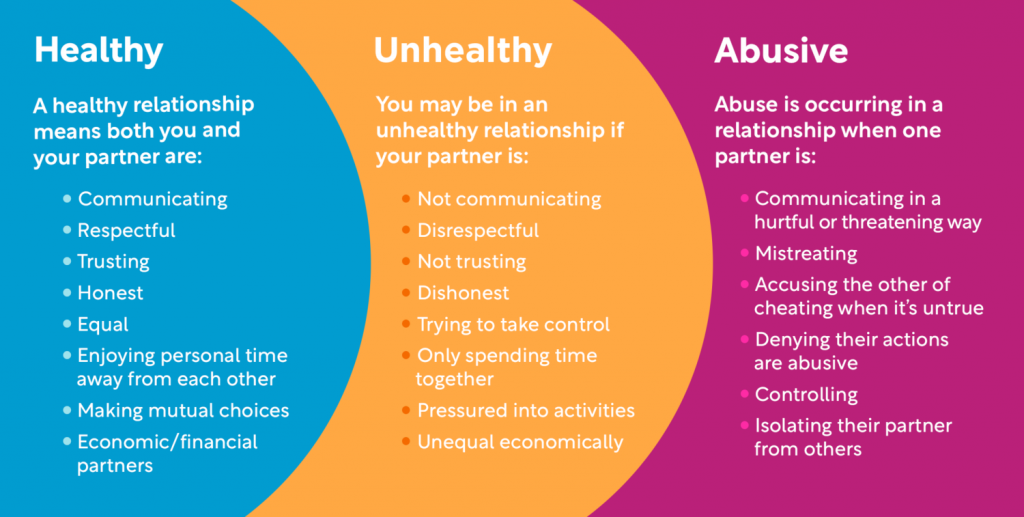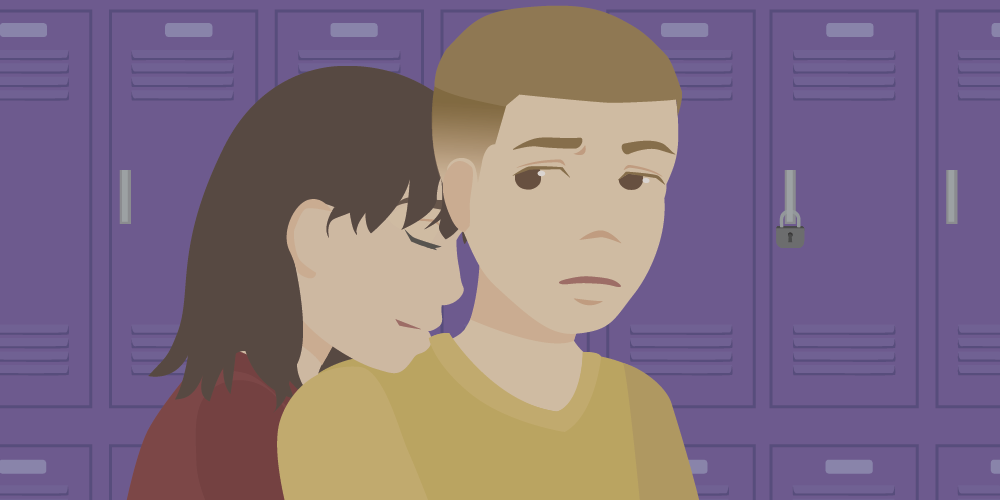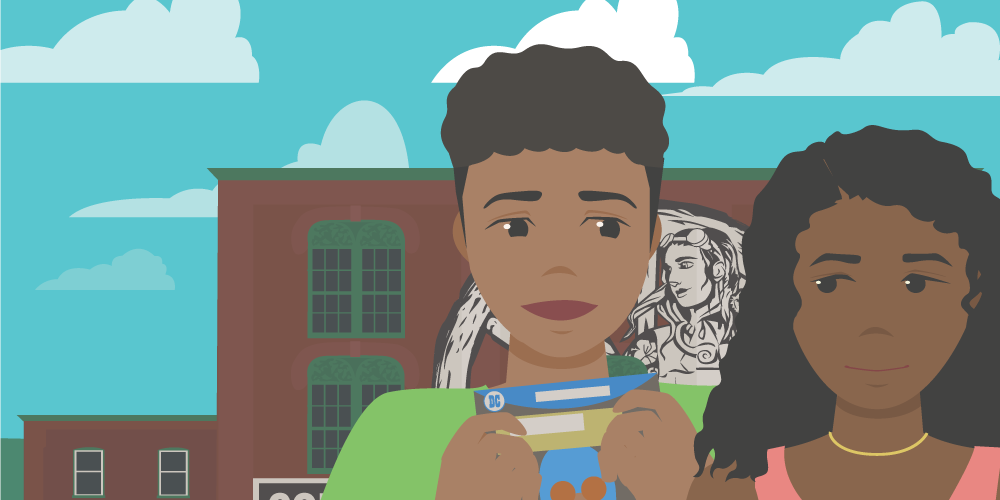Parents play a big role in helping their teen understand what a healthy relationship looks like, especially when modelling behaviors of healthy relationships. It’s never too soon to start talking about relationships. In fact, many of the skills needed to maintain a healthy romantic relationship are also important when it comes to friendships or familial relationships. By building these skills with frequent conversations, they will have the tools they need before they become romantically involved with someone.
Where do I start?
You can always look for opportunities to talk about relationships in TV shows or movies to initiate the conversation; ask them questions about what they think makes the relationship good or bad. If it makes sense, you can also discuss experiences you’ve had— how you knew someone was right or wrong for you, and what kinds of things you expect in a relationship. Show them you value their opinions and thoughts, and encourage them to come to you if they have questions about romantic relationships or even friendships. You can find great resources and tools like the one below that compare different aspects of relationships.

If your teen is already in a relationship, find ways for them to self-reflect on their relationship. A great tool you can print off and complete with your teen or have them work reflect on themselves is this Healthy Relationship Quiz. Be sure to always take a non-judgmental approach and really make an effort to listen, you do not want your teen to think you are attacking their decisions but instead offering support and guidance alongside of them.
How do I encourage effective communication skills?
Healthy Communication is an important aspect to any type of relationship. The first way that teens learn to communicate is through conversations that they have with their parents. If we do not communicate with respect, honesty, and fairness, they are likely to mimic that when they are developing connections with friends or romantic partners. Here are some helpful ways to practice talking with your teen in order to build effective communication skills:
- Use “I statements.” “I feel frustrated when you…” works better than “You’re making me mad.” By using “I statements” you are removing blame and not accusing them of trying to be hurtful.
- Be clear and upfront about how you feel. None of us are mind readers, so tell them what you think, feel, and need.
- Try to see their point of view– If you do not understand what they are saying or why, ask questions and try to put yourself in their shoes. Don’t make assumptions.
- Build trust. Be true to your word and follow through with your actions, try not to make promises make you can’t keep and trust what the other is saying — unless they’ve given you a reason not to.
- No yelling or insults. It’s normal is you get angry or defensive during an argument; but if you’re feeling upset, it’s best to calm down and revisit the conversation at another time, this way you are communicating with a clear mind.
- Apologize. Everyone makes mistakes. Saying you are sorry (and meaning it) goes a long way in helping to move on after a disagreement.
What do I do if I think my teen in is an unhealthy relationship?

Remember that teens can be emotional and sometimes defensive in response to criticism. Avoid being judgmental, this may push them away from you and further into the relationship you’re questioning. Remind your teen that you love them no matter what, that they are not at blame for being in an unhealthy relationship, and remind them of the kind of respect and love they deserve.
Try to encourage your teen to end the relationship. If they choose to stay with that person, or break-up and then go back to them, it’s important that your teen knows they can still come to you and won’t be in trouble. It’s common for it to take multiple times of breaking up and getting back together before someone leaves an unhealthy relationship for good.
What about break ups?
These relationships may seem silly or unimportant as an adult — especially since most of a teenage relationship seems to take place over text. But remember that for a teen, these relationships feel just as real as adult relationships. Be sure that your teen knows that grief at the end of a relationship is normal, and that it’s okay to be sad. Try to uplift them by reminding them how you’re proud of them and of the good qualities that have.
Make sure your teen knows that getting revenge is never okay — no matter how much things hurt. Things like gossiping, bullying, or making private messages public online can be damaging to another person, and if they wouldn’t like it to happen to them then they shouldn’t do it to others.
Relationships can be difficult to navigate for anyone but having a supportive parent or trusted adult who are there to listen and support is key!



